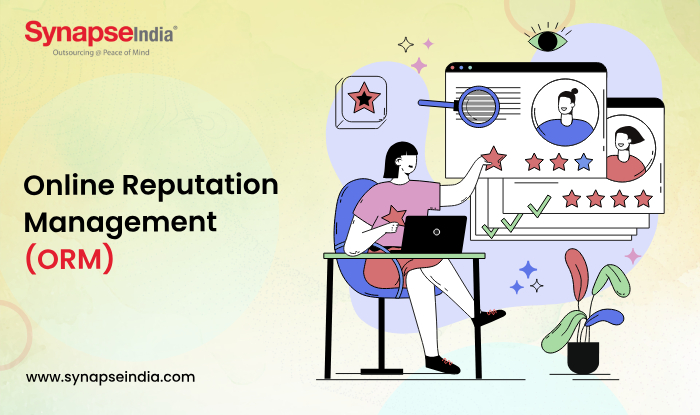 02 May 2024
02 May 2024
In the digital age, there are a lot of factors that satisfy customers and help the company’s reputation to influence. Here the company’s online reputation management is what comes into the picture. Online reputation management, or ORM, has grown more and more important in today's digital world for both individuals and corporations. Due to the widespread use of social media, review websites, and internet forums, opinions about companies and people can be rapidly influenced, frequently with grave repercussions.
To make sure that a brand or individual's online reputation appropriately represents their values, credibility, and dependability, ORM entails tracking, influencing, and controlling that reputation. In this blog, let's explore the significance of online reputation management (ORM), its essential elements, and tactics for successfully managing and boosting one's online reputation in a constantly changing digital environment.

The process of keeping an eye on, influencing, and controlling an individual, brand, or organization's online reputation is known as online reputation management or ORM. Keeping a good online image is essential for companies, people, and even public figures in the digital age when information travels quickly and opinions are shared with ease. To influence public opinion, respond to criticism or reviews, promote positive content, and make sure that search engine results accurately portray the desired image, ORM employs a variety of tactics. Entities can enhance their exposure, consumer trust, and economic success by proactively cultivating trust, credibility, and goodwill within their target audience through effective online reputation management.
Here are the top strategies that help your brand establish an online reputation:
Keep an eye out for mentions of your brand on social media, review sites, forums, and news articles, among other online media. Track discussions about your brand in real time by using tools like Mention, Google Alerts, and social media listening platforms.
Actively interact with your audience by answering reviews, messages, and comments—both good and bad—as soon as possible. Responding to consumer feedback shows openness, promptness, and a dedication to client pleasure, all of which can enhance the perception of your company.
Request your clients to post favorable reviews on Yelp, Google My Business, and review sites dedicated to a particular industry. Offer top-notch goods or services, and facilitate the sharing of happy customer experiences by giving links or encouraging people to write evaluations.
Negative reviews or other unfavorable comments are bad for your brand. Always try to admit the mistake, extend your regret if required, and provide a public apology and explanation. If you can, move the discussion offline to settle the disagreement in private and stop it from getting worse.
Create and disseminate top-notch content that highlights the knowledge, principles, and beneficial contributions of your brand. Dismissing unfavorable search results and increasing audience trust and credibility are two benefits of publishing educational blog pieces, case studies, films, or whitepapers.

Make sure that positive material appears higher in search results by optimizing your website and social media profiles for search engines. Make use of schema markup, meta tags, and pertinent keywords to increase visibility and drive more natural traffic to your digital properties.
To create and implement a thorough reputation management plan that is specific to your brand's requirements, think about collaborating with a respectable ORM consultant or agency. Professionals with experience can offer knowledge, perceptions, and tools to protect and improve your brand's internet reputation.
A key component of contemporary branding and digital marketing strategy is online reputation management or ORM. Businesses may mold and manage their online reputation to create credibility, trust, and favorable opinions among their target audience by actively tracking, evaluating, and participating in online discussions. Businesses can manage their brand image and reduce reputational risks by using proactive strategies like connection building, crisis communication, review management, and content production. These strategies are provided by ORM. Investing in ORM will continue to be crucial for maintaining brand reputation and promoting long-term success in the cutthroat industry as the digital landscape changes.

